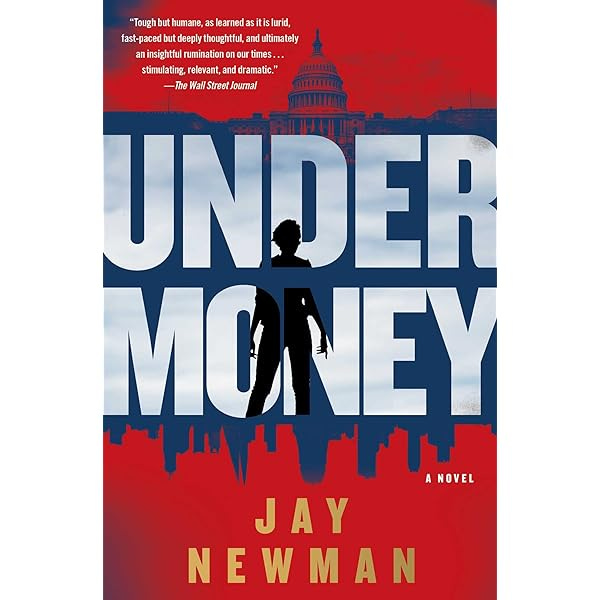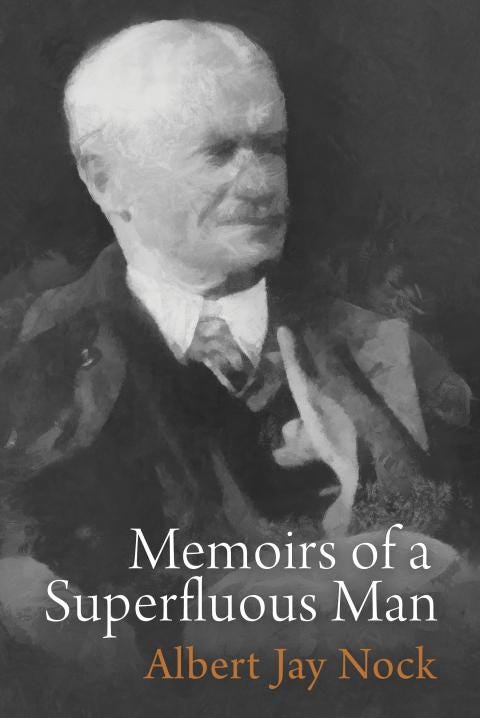Welcome Avatar!
The holiday season is a great time to catch up on some personal reading. If you’re somewhere cold, you know there’s something special about getting cozy and reading some books.
People loved our book list from last year so we thought we’d once again share the top 5 books we recommend.
Good books are timeless, so these weren’t all released in 2023.
This book list ranges across topics, though we purposefully selected books we believe our readers would get immense value from.
Since you’re a DeFi Ed reader you already know that becoming a good investor requires a strong appetite for reading and researching. None of these books are about crypto - you already get the equivalent of a crypto book every week from us if you’re a paid sub to DeFi Ed!
Without further ado, we present to you the DeFi Education Holiday Book List.
Fifty Years in Wall Street
By: Henry Clews
Why we like it: A vivid historical account of Wall Street in the nineteenth century, with intriguing stories of how the most notably speculators of that era made (and lost) their fortunes.
This book contains an investment strategy which still works today, under the heading “How to take Advantage of Periodical Panics in Order to Make Money.” If only there was an industry full of cartoons that was known for its frequent periodic panics!
Here’s an added bonus: since this book was published in 1908, it is out of copyright and can be read online or downloaded to your e-reader for free at Project Gutenberg (excellent free resource for books).
The dead tree edition is available from all good book stores.
Undermoney
By: Jay Newman
The first fiction book on our list, though to what degree we can believe these events to be fiction is up for debate. The value in this book is not the content in and of itself, but rather who it is written by.
Jay Newman worked at a hedge fund known as Elliott Management for 27 years where he led their sovereign distressed debt investments. Elliott today manages over $60 billion, making them one of the world’s largest hedge funds. They’re known for their activist investments and distressed debt strategies.
Newman led Elliott’s most famous trade - their contentious investment in distressed Argentinian bonds that spanned over 15 years.
With nearly 30 years at one of the largest, most secretive, and aggressive hedge funds out there leading distressed debt investments across the world in Latin American, Eastern European, African, and Asian countries, it’s fair to say that Newman has a good understanding of the inner workings of financial systems. This book caught our eye for precisely this reason - at the end of his career Newman decided to write a “fiction” novel about what he calls undermoney - the currency of corruption,
with the power to control individuals.
We thought it was peculiar that at the end of a long, successful financial career one would choose their culminating body of written work be a book about how black money permeates through the financial sector. Newman said in an interview that there is not much that is fiction in the book (though after our readthrough we’d say it certainly has some out-there moments).
He wouldn’t be the first financier to write a “fiction” book that isn’t really fiction (likely for a degree of plausible deniability). Though it has an entirely different tone and plotline, founder of Korea’s largest private equity fund Michael Byung Ju Kim also wrote a novel called “Offerings” which appears to detail his life.
The Alchemy of Finance
By: George Soros
Legendary investor and political activist György Schwartz aka George Soros was born in Budapest, Hungary in 1930. He is publicly known for donating more than $30 billion of his hedge fund fortune to his “Open Society” foundations.
Sorors described The Alchemy of Finance as “my life’s work.” In it, he presents a groundbreaking theory: reflexivity, the concept that the perceptions and behaviors of market participants can influence fundamentals, creating a self-reinforcing feedback loop. A significant departure from what the models of classical economics assumed.
Alchemy contains an overview of reflexive processes broken out by asset class (stocks, currencies, credit, real estate) followed by a number of case studies (the 1987 crash, the Japanese Bubble). Soros discusses how he applied his principles while managing the Quantum Fund, a vehicle which generated 300x returns for its original investors.
Although we may take some of his insights for granted today, Soros was one of the first to formulate then publish theories accounting for the impact of psychology and human behavior on financial markets. We also acknowledge the contributions of pioneers in the field of behavioral finance: Daniel Kahneman and Amos Tversky who developed “Prospect Theory” and have published other interesting books and papers.
Obvious Adams: The Story of a Successful Business Man
By: Robert Updegraff
This quick and easy read is for anyone who is interested in marketing, advertising, or simply writing online. A great book for anyone (especially technical people) on keeping things simple to remember to avoid getting so in the weeds that you miss the obvious things that work.
It was originally published in 1916 in the Saturday Evening
It’s public domain and you can read it for free here.
Memoirs of a Superflous Man
By: Albert Jay Nock
One of the first Americans to self-identify as libertarian, Albert Jay Nock was a prolific author, educational theorist, and social critic.
Nock’s self-description as a “superflous man” in his memoirs reflects his perspective on his place in society due to his remarkable views on education and culture. He argued from an elitist perspective, believing that society could not be reformed due to the natural / biological limitations of the average person and the pervasive influence of the State (particularly through control of public education).
An equalitarian and democratic régime must by consequence assume, tacitly or avowedly, that everybody is educable…Our preceptors did not pretend to believe that everybody is educable, for they knew, on the contrary, that very few are educable, very few indeed. They saw this as a fact in the order of nature, like the fact that few are six feet tall…They accepted the fact that there are practicable ranges of intellectual and spiritual experience which nature has opened to some and closed to others.
A practical solution is the concept of a libertarian Remnant: those educated and moral citizens who preserve knowledge and culture through generations of social decline; acting as custodians of civilization’s highest achievements until society is receptive to them again.
Memoirs contains astute and outlook-changing observations on economics, society, culture, and the role of the State which should be of interest to cryptocurrency enthusiasts. Electronic copies available free from mises.org
And that’s a wrap!
Let us know what you think of these books once you read them - we’d love to know your thoughts.
If you want to settle into something crypto specific, we’d suggest using the holiday time to go through the video materials in the academy. It’s about 7 hours of total content, which you should be able to get through in under a week. Hundreds of happy buyers so we’re confident that if you decide it’s for you, you won’t be disappointed.
This is a free post. Become a paid subscriber for deep dives, market research, and direct access to our team via Q&As.
Disclaimer: None of this is to be deemed legal or financial advice of any kind. These are opinions from an anonymous group of cartoon animals with Wall Street and Software backgrounds.
Academy: Comprehensive course made by us and taken by hundreds (Click Here)
Security: Our official views on how to store Crypto correctly (Click Here)









Kahneman is great, Thinking Fast & Slow was an amazing read... as well as one of his colleagues books Superforecasting
Excited for Undermoney, thanks.
Always been intrigued by the inner “fictional” workings of the distrusted debt vultures